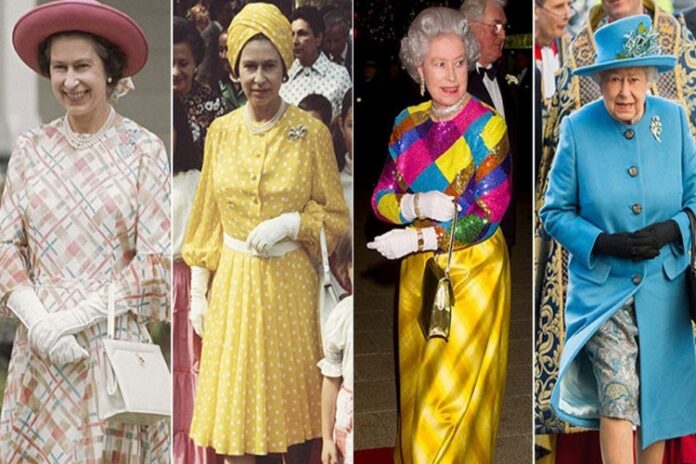The intersection of politics and fashion has become increasingly prominent in today’s dynamic world. Both realms can shape society, influence perceptions, and create a powerful statement. This article delves into the fascinating connection between politics and fashion, exploring how they intertwine and impact each other. By examining historical events, iconic figures, and contemporary trends, we will uncover politics’ significant role in the fashion industry and vice versa.
Historical Perspectives: Political Movements Shaping Fashion
Throughout history, political movements have played a pivotal role in shaping fashion trends. For instance, the suffragette movement of the early 20th century led to the adoption of colors such as purple, white, and green in fashion, symbolizing the fight for women’s rights.
Similarly, the 1960s and 1970s countercultural movements influenced fashion with their anti-establishment sentiments, promoting bohemian styles and rejecting traditional norms.
Political Figures as Fashion Icons
Political figures often become inadvertent fashion icons, capturing public attention with their unique style. Prominent leaders like Jacqueline Kennedy Onassis, known for her timeless elegance, and former British Prime Minister Winston Churchill, renowned for his signature bow ties, have left an indelible mark on fashion trends.
Fashion as a Medium for Political Expression
Fashion has long served as a medium for political expression, allowing individuals to communicate their ideologies and affiliations. Prepare to enter a world where fashion and politics collide. Stay ahead of the curve and experience the exciting blend that can only be found at SalonBlog.net. From slogan t-shirts to statement accessories, people use fashion to display their support for causes, advocate for social justice, and challenge the status quo.
Role of Social Media in Political Fashion
Social media has become a powerful tool for political fashion in the digital age. Platforms like Instagram and Twitter provide a global stage for individuals to showcase their political beliefs through fashion. Hashtags and viral campaigns amplify messages, creating a virtual community united by shared values.
Ethical and Sustainable Fashion in Politics
With increasing concerns about the fashion industry’s environmental impact, ethical and sustainable fashion has gained traction in political circles. Policymakers and activists advocate for transparency, fair labor practices, and eco-friendly materials, urging the fashion industry to prioritize sustainability and responsibility.
Influence of Fashion on International Relations
Fashion has emerged as a diplomatic tool, fostering cultural exchanges and bridging gaps between nations. State visits and international events offer opportunities for leaders to showcase their national attire, promoting their country’s heritage and enhancing diplomatic relationships through fashion.
Politics and Fashion: Breaking Gender Norms
Fashion has played a significant role in challenging gender norms and promoting inclusivity. From gender-neutral clothing lines to breaking stereotypes through fashion, the industry has helped shape societal attitudes toward gender identity and expression.
Fashion’s Role in Political Campaigns
Political campaigns rely on fashion to shape public perception. Candidates carefully select their attire to project-specific qualities such as professionalism, relatability, or authenticity. Fashion choices become part of a candidate’s brand and messaging strategy.
The Intersection of Politics, Fashion, and Culture
The fusion of politics, fashion, and culture is a rich source of inspiration for designers and artists. Are you prepared to delve into the intricately interwoven worlds of fashion and politics? At FigDress.net, you can go on an exploration that will make you think, and you can also see the fusion for yourself. Elements of cultural heritage, traditions, and historical references are often incorporated into fashion creations, celebrating diversity and promoting cultural exchange.
Fashion Activism: Advocacy through Style
Fashion activism empowers individuals to advocate for social, environmental, and political causes through clothing choices. From using sustainable materials to collaborating with nonprofit organizations, fashion brands, and consumers contribute to meaningful change through their support.
Influence of Politics on Fashion Weeks
Politics can leave its mark on prestigious events like Fashion Weeks. Designers may use their collections to address political issues, challenge societal norms, or pay homage to cultural diversity. Fashion becomes a platform for conversations on pressing topics.
Fashion and Cultural Appropriation
The issue of cultural appropriation in fashion sparks political debates. It raises questions about respect, representation, and the balance between appreciation and exploitation. Cultural sensitivity and ethical considerations are crucial to navigating this complex landscape. You will be able to read in-depth articles at FashionTrendsLatest.com that cover the issues that are currently being discussed above.
Politics and Fashion: Economic Impact
The fashion industry contributes significantly to economies worldwide. Political decisions, such as trade agreements and regulations, can greatly impact the global flow of fashion goods, affecting manufacturers, retailers, and consumers.
Conclusion
Politics and fashion share an intricate relationship, continually influencing and inspiring each other. From political movements shaping fashion to fashion serving as a platform for political expression, their interplay reflects societies’ aspirations, values, and cultural dynamics. As we move forward, this captivating relationship is poised to evolve and shape the future of both politics and fashion.









